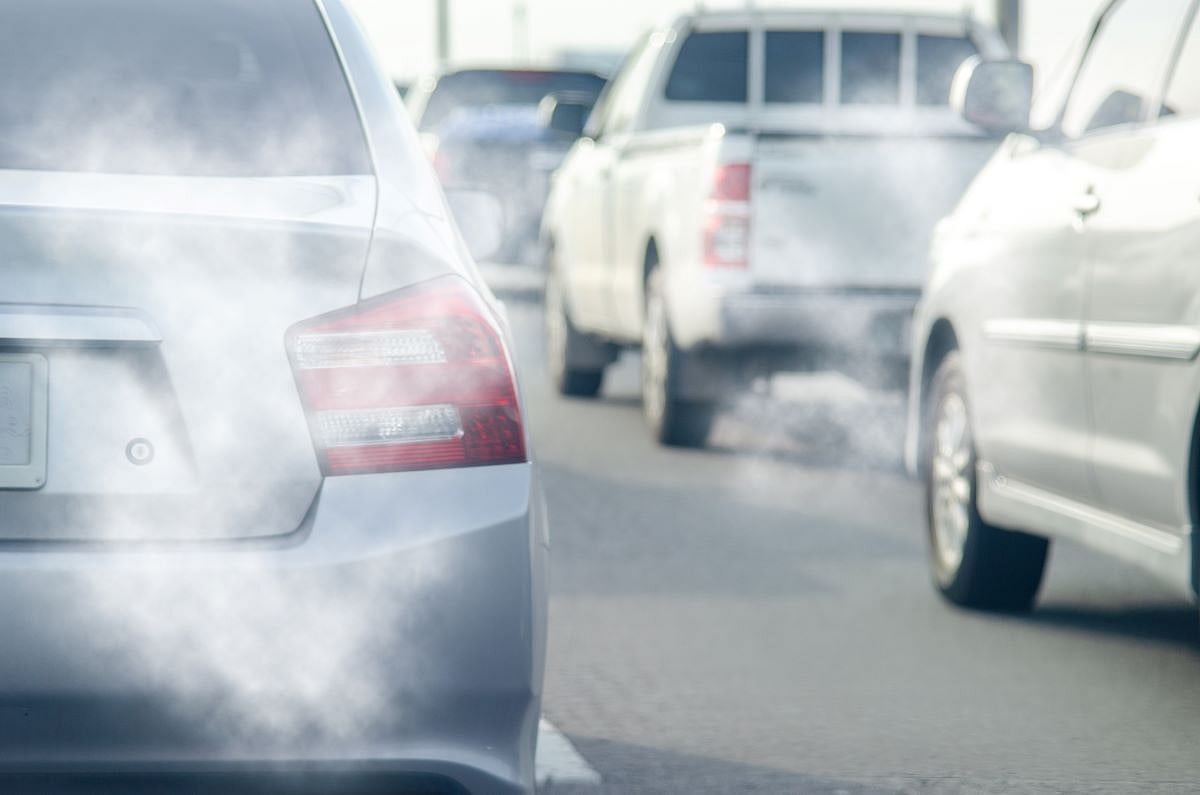Get Healthy!

- Dennis Thompson
- Posted April 18, 2025
Air, Light Pollution Increase Risk Of Thyroid Cancer In Children
Babies exposed to air and light pollution have a higher risk of developing childhood thyroid cancer, a new study says.
Airborne particle pollution and outdoor artificial light both increased babies’ risk of developing thyroid cancer before they turned 20, researchers recently reported in the journal Environmental Health Perspectives.
“These results are concerning, especially given how widespread both of these exposures are,” lead researcher Nicole Deziel, an environmental epidemiologist at the Yale School of Public Health, said in a news release.
“Fine particulate matter is found in urban air pollution due to automobile traffic and industrial activity, and artificial light at night is common, particularly in densely populated urban areas,” she added.
Both fine particle pollution and light pollution are considered environmental carcinogens that disrupt the body’s endocrine system, including thyroid function, researchers said in background notes.
Particle pollution pose a threat because they’re small enough to enter the bloodstream. The airborne particles can be smaller than 2.5 micrometers, while a human hair is 50 to 70 micrometers wide, according to the U.S. Environmental Protection Agency (EPA).
And outdoor artificial light can suppress melatonin and alter a person’s sleep/wake rhythm, which also influences hormone-regulated cancers, researchers said.
For the study, researchers compared data from 736 young people diagnosed with thyroid cancer before age 20 with that from 36,800 healthy kids, all of whom hail from California.
The team assessed the cancer patients’ exposure to air and light pollution based on their families’ home address when they were born.
Results showed that for every 10 micrograms per cubic meter increase in particle pollution, a child’s odds of developing thyroid cancer rose by 7% overall.
The strongest associations between air pollution and thyroid cancer were found among 15- to 19-year-olds (8% increased risk) and Hispanic children (13% increased risk), researchers said.
Likewise, children born in areas with high levels of outdoor artificial light were as much as 25% more likely to develop thyroid cancer.
"Thyroid cancer is among the fastest growing cancers among children and adolescents, yet we know very little about what causes it in this population," Deziel said.
"Our study is the first large-scale investigation to suggest that these exposures early in life -- specifically to PM2.5 and outdoor light at night -- may play a role in this concerning trend,” she added.
Compared to adults, children are often diagnosed with thyroid cancer at more advanced stages, with larger and harder-to-treat tumors, researchers said.
Even if kids survive thyroid cancer, they can suffer aftereffects like headaches, physical disabilities and mental fatigue that will haunt them throughout their lives, researchers said.
Researchers emphasized that more work is needed to replicate and validate their findings.
“In the meantime,” Deziel noted, “our results point to the critical importance of addressing environmental factors in childhood cancer research. Reducing exposures to air pollution and managing light pollution could be important steps in protecting children's health.”
More information
The National Cancer Institute has more on childhood thyroid cancer.
SOURCE: Yale School of Public Health, news release, April 15, 2025
